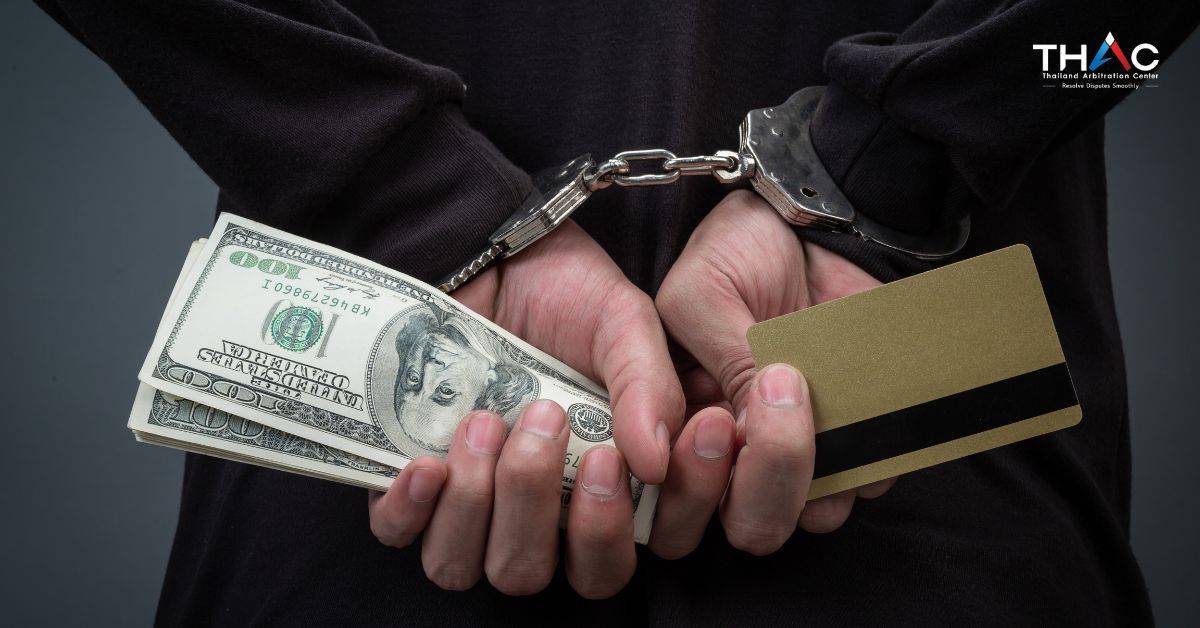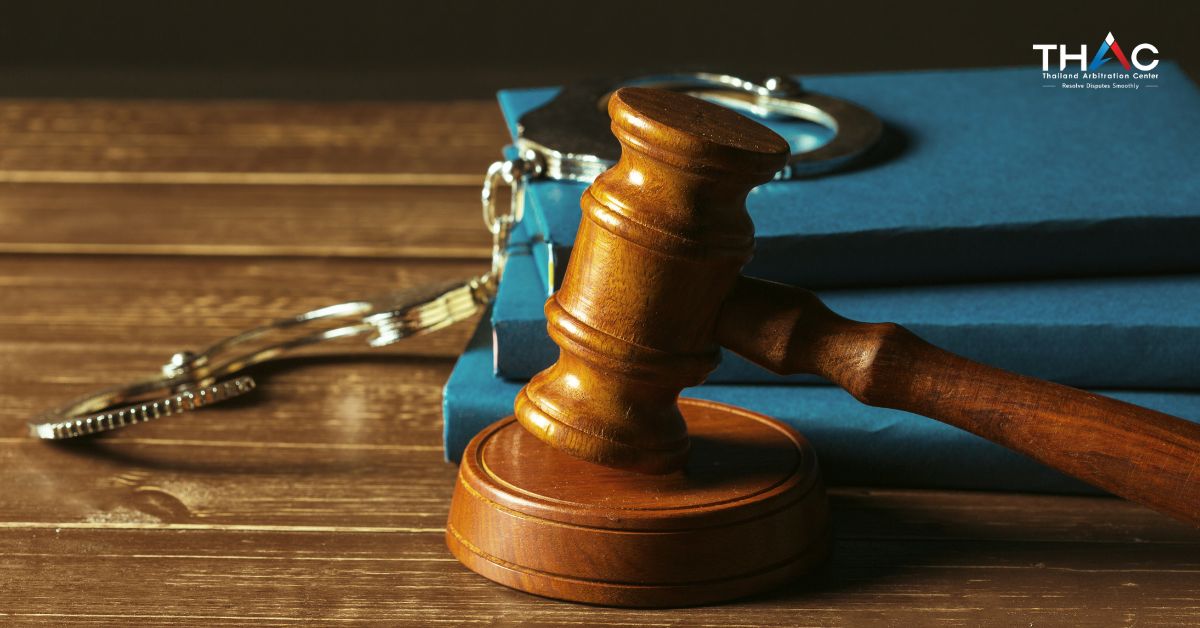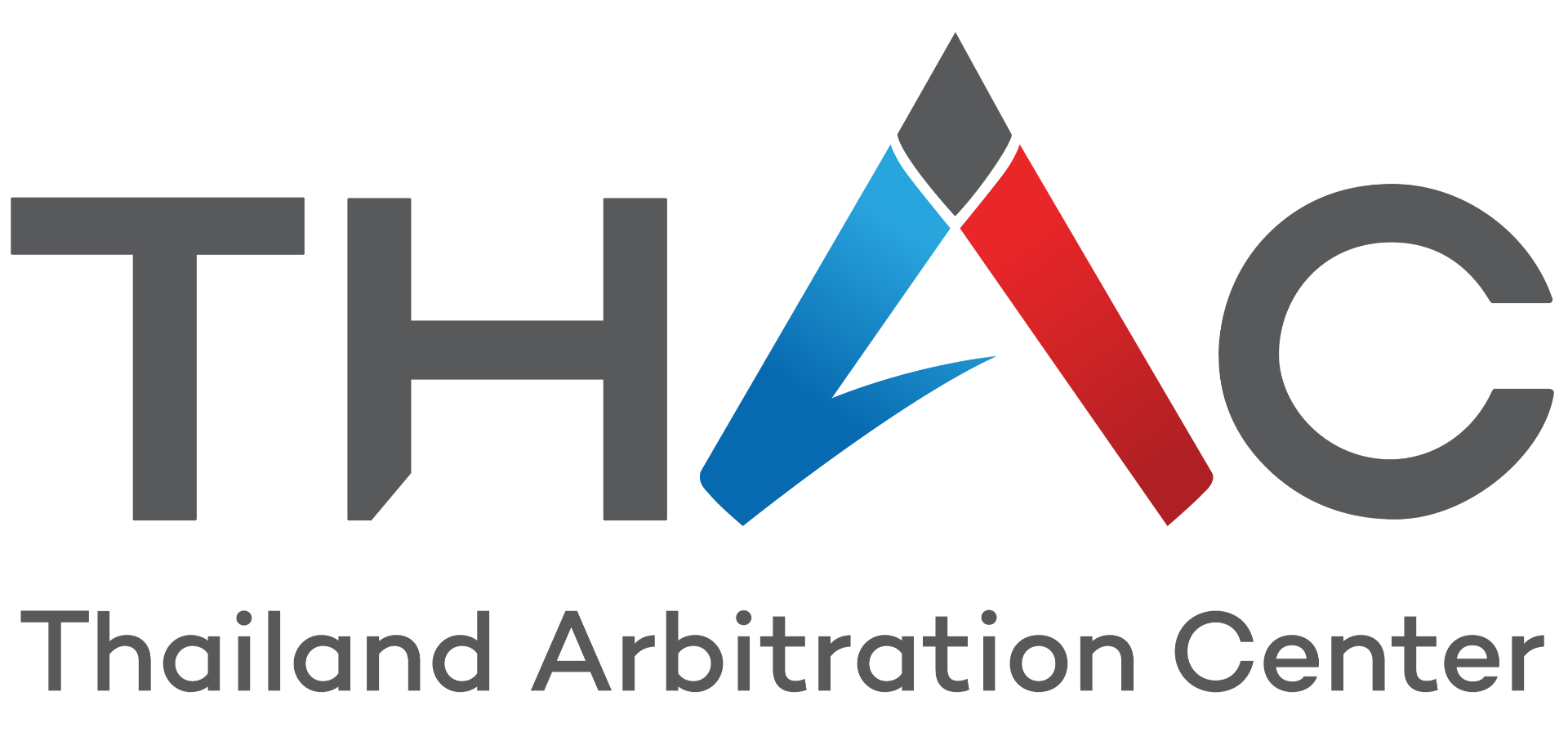
Navigating the Maze: Intricacies of Criminal Cases in Thailand

Disputes are a recurring challenge and are often unavoidable, especially in the business world—not only civil disputes but also criminal matters. For expatriates, foreigners, and international business owners, navigating the criminal law in Thailand can prove to be intricate. The Thai legal system has its own set of rules; thus, criminal cases can differ from what one might be accustomed to in Western countries.
In this article, THAC will introduce you to criminal cases in Thailand, exploring its key characteristics, stages of prosecution, and alternative dispute resolution methods like mediation and arbitration.
Understanding Criminal Law in Thailand
Dissimilar to common law systems, Thailand follows a civil law system, relying on codified statutes and judicial interpretations. A criminal case arises when an individual allegedly violates a law outlined in the Penal Code or other specific statutes. These offenses can range from petty theft to serious crimes like homicide and drug trafficking. This framework also grants judges broader discretion in interpreting the law, as opposed to relying heavily on established case law.
Another crucial difference is the absence of a jury system in Thailand. Judges solely determine guilt or innocence based on the evidence presented by the prosecution and defense. This can be a significant departure for those accustomed to the jury trial process.
Key Differences from the Western Legal System
As previously stated, criminal law in Thailand has certain dissimilarities when compared to Western laws, which causes it to be puzzling for those new to the Thai legal system. Here are some of the significant distinctions:
- Absence of Jury System: Thailand’s legal system relies on judges to determine the guilt or innocence of the defendant. They have a broader discretion in sentencing compared to a jury-based system.
- Pre-Trial Detention: Suspects can be detained for up to 48 hours without formal charges and can last for a longer period if placed in the custody of the court.
- Limited Bail: While suspects may apply for bail, it is granted less frequently. Additionally, the severity of the offense, flight risk, and financial means heavily influence the court’s decision.
- Defamation as a Criminal Offense: In Thailand, defamation carries criminal penalties, while in many Western countries, it is primarily treated as a civil issue.
- Burden of Proof: Although the accused is presumed innocent until proven guilty, the burden of proof usually rests with the defendant to disprove accusations.
These differences highlight the significance of seeking legal counsel immediately if one is facing criminal litigation in the nation. Legal professionals like lawyers can help navigate complex case details, laws, and help prepare the burden of proof to prove innocence.

Navigating the Stages of Criminal Prosecution in Thailand
The criminal prosecution process in Thailand is a multi-stage process that includes phases. Each of the stages involves different procedures and legal standards compared to Western systems, with a strong emphasis on the investigatory phase conducted by the police.
Stage 1: Inquiry/Investigation
Naturally, when a criminal case occurs or a criminal complaint is filed, the authorities will start gathering information and evidence, as well as interviewing witnesses. Upon suspicion of criminal activity, authorities may arrest the suspect and detain them for up to 48 hours before presenting them to court. If the investigating officer cannot complete the investigation within this time, the law requires that the alleged offender be placed in the custody of the court.
Furthermore, the investigating officer is required to determine and recommend whether to proceed with prosecution. Should the recommendation support prosecution, the officer must also ensure that the accused is presented before the prosecutor.
Stage 2: Indictment and Entry of Plea
If sufficient evidence is present, the public prosecutor will then file a charge against the alleged criminal, and the case goes to trial. The court will examine the case and rule on whether the charge conforms to the law. During this stage, the defendant has the opportunity to challenge the charge or request bail. However, if the judge approves of the charge, the date of trial is then set.
Stage 3: Trial and Sentencing
The trial serves as the stage where both sides have the opportunity to present their arguments and evidence before the judge. Both sides have ample time to gather evidence and prepare arguments. This includes witness testimony, documents, and physical objects. To ensure fairness, both parties are required to disclose their list of evidence and witnesses to each other before trial and submit the list to court. The prosecution has 15 days to submit the proof, while the defense is asked to submit the list a day before the hearing.
In the trial presentation, the prosecution is first to present their case, followed by the defense to introduce their own evidence to counter the prosecution’s claims. The judge acts as a neutral party, overseeing the trial and ensuring it follows legal procedures.
Beyond Prosecution: Exploring Alternative Dispute Resolution
While prosecution represents the formal legal route, alternative dispute resolution (ADR) methods like mediation and arbitration offer quicker and potentially more amicable solutions:
- Mediation: A neutral third party facilitates communication between parties to reach a mutually agreeable settlement. This can be particularly beneficial in property disputes or contractual disagreements before turning into a criminal case.
- Arbitration: Parties agree to have a law-binding agreement made by a neutral arbitrator, similar to a judge, based on evidence and arguments presented. This can be faster, less expensive, and offers more privacy compared to court proceedings.
Choosing the right approach depends on the specific case, budget, and desired outcome. Consulting an expert lawyer or established law firm in Thailand can help you determine the most suitable option for your situation.
By understanding the core concepts of criminal cases in Thailand, its key attributes, and available resolution options, you can be better prepared to make informed decisions and protect your rights.
THAC: International Arbitration and Expert Mediation Services
As an international arbitration institution, THAC specializes in providing effective and impartial dispute resolution services. Our team of seasoned arbitrators and mediators brings a wealth of experience to the table, ensuring that your business disputes are handled with the utmost expertise and professionalism.
If you have questions about our arbitration services or any other legal services, please get in touch with us at:
Email: [email protected]
Call: +66 (0)2018 1615
THAC is looking forward to helping you.

